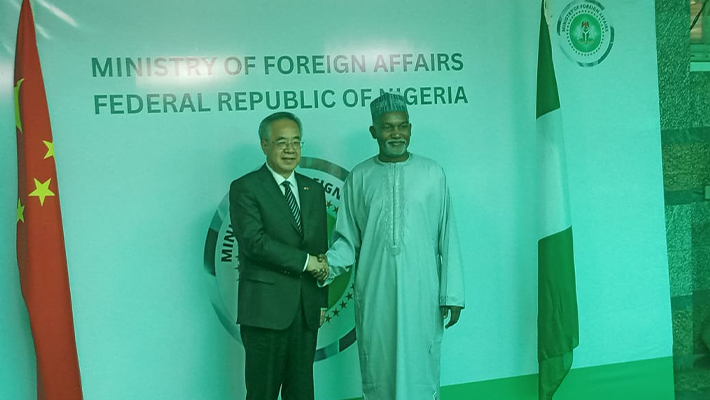The People’s Republic of China has restated its commitment to deepening bilateral cooperation with Nigeria, pledging stronger diplomatic, economic, and infrastructural collaboration, in a move that underscores growing geopolitical realignments.
During a high-level visit to Abuja, Hu Chunhua, Vice-Chairman of the Chinese People’s Political Consultative Conference (CPPCC), met with Nigeria’s Minister of Foreign Affairs, Yusuf Tuggar, to reaffirm Beijing’s support for Nigeria’s leadership role in Africa and to strengthen ties between the two countries.
“We value Nigeria as a strategic partner in Africa,” Mr. Chunhua said. “Our long-standing relationship has been mutually beneficial, and we are committed to expanding that cooperation in all sectors.”
He also referenced recent diplomatic engagements — including President Bola Tinubu’s state visit to China in 2024 and Tuggar’s earlier official visit — as key moves in reinforcing bilateral relations.
“These exchanges have laid the groundwork for an even more fruitful partnership,” he added.
In response, Minister Tuggar expressed appreciation for China’s continued engagement and investments in Nigeria’s infrastructure, trade, and technology sectors. He reiterated Nigeria’s adherence to the One-China policy, a critical point of diplomatic alignment between the two nations.
“We appreciate China’s consistent support for Nigeria’s development agenda and its recognition of our role within ECOWAS and across the continent,” Tuggar said. “Nigeria remains committed to strengthening this partnership, especially in today’s complex global environment.”
Background
This renewed diplomatic commitment comes amid an increasingly polarized global economy, where nations are navigating strategic alignments between China and Western powers — particularly the United States. As trade tensions escalate between Washington and Beijing, countries in Africa are finding themselves at the heart of new global influence dynamics.
China has continued to extend its Belt and Road Initiative (BRI) into Africa, focusing on large-scale infrastructure projects, technology investments, and bilateral trade agreements. Nigeria, Africa’s largest economy, is a pivotal player in this calculus.
Some diplomats had pointed out that Nigeria’s engagement with China reflects a broader trend of Global South nations pursuing pragmatic, multilateral partnerships — rather than aligning exclusively with Western powers as it was the case before the global realignment.
More so, the meeting signals not only continuity in China-Nigeria relations but also a subtle message to the international community that Africa’s diplomatic compass is increasingly diverse and China has positioned itself to remain firmly in the picture.





